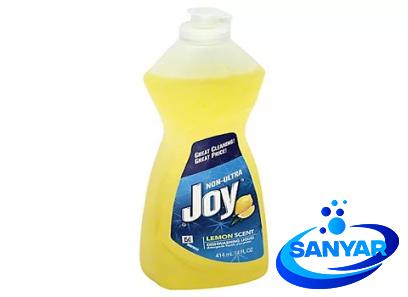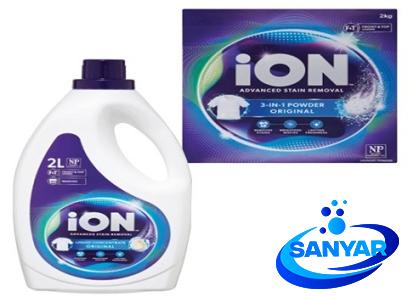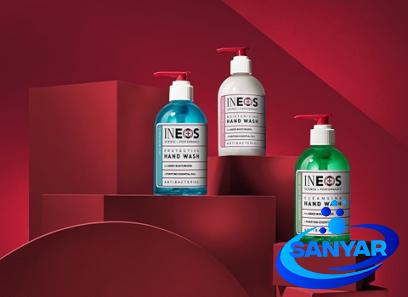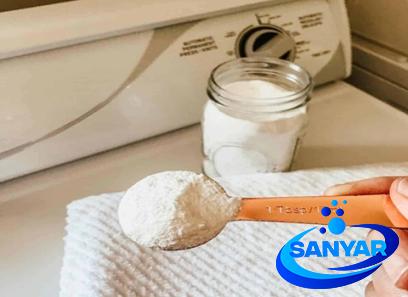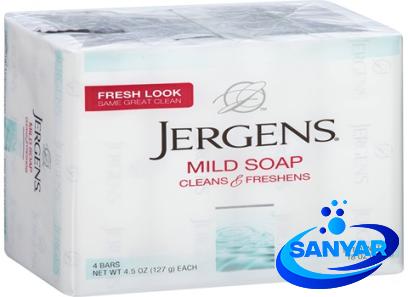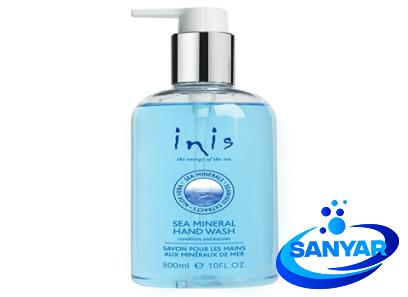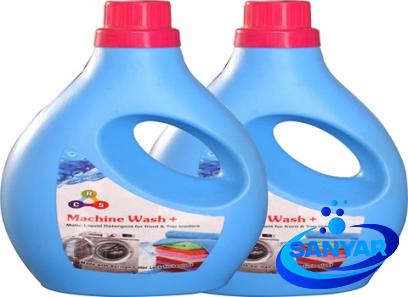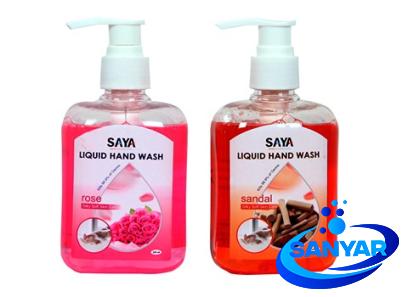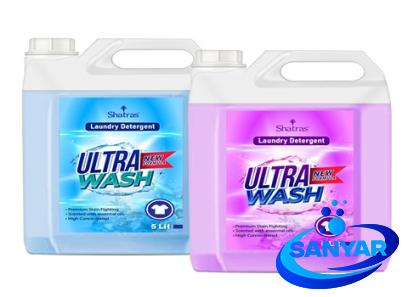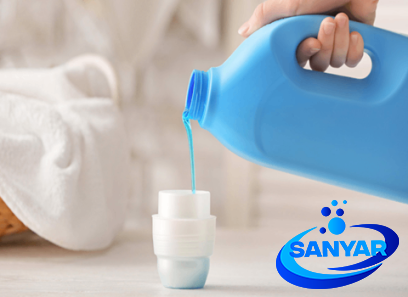detergent eczema taste purchase price + quality test
Detergent eczema is a skin condition that is caused by contact with detergents
The most common symptom of this condition is the taste of detergent in the mouth
This usually happens after a person has done laundry or cleaned the house with a detergent
The leading cause of this condition is that these substances are too harsh for the skin and cause irritation
This irritation causes an imbalance in the pH levels on the skin and creates an alkaline environment
The alkaline environment then produces sour chemicals, which can be tasted in the mouth even if there isn’t any detergent
The most common cause of this condition is exposure to detergents, soot, and ammonia
These substances are harsh and can be irritating to the skin
Other chemicals that can cause detergent eczema include soap scum, disinfectants, and bleach
This condition is not contagious
Detergent eczema causes a burning sensation in the mouth, which several things can cause several
This includes number of things can—they exposure to detergents or chemicals, toothpaste, mouthwash, and even some types of food
The most common cause of this condition is exposure to detergents and chemicals because they cause reasons can be found in many household products such as laundry detergent, dishwasher detergent, and hand soap
To avoid this condition, try using brands that contain only natural ingredients
People who are generally sensitive to various things should first use a small amount of the product as a test before using it regularly on a large scale
Other than avoiding harsh detergents, some available prevention can also help prevent detergent eczema from getting worse
These include: Wash the hands thoroughly after exposure to detergents or chemicals
Use moisturizing lotion or cream on the affected area to moisten the skin and make it less irritated
It is necessary to repeat this regularly because once exposed, it is likely that eczema will return later on
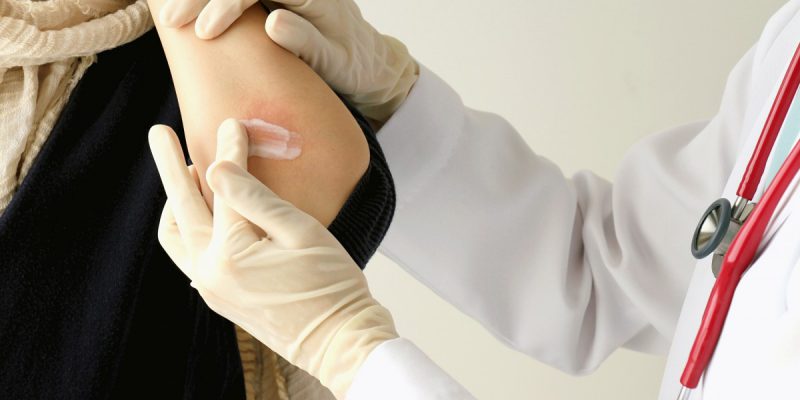
Detergent eczema
Detergent eczema is a skin condition that causes an itchy and red rash to form on the skin
It can cause a burning sensation and, in some cases, can lead to blistering
It is more common in people with sensitive skin or eczema
Symptoms of detergent eczema include:
Dry, itchy skin
Red patches of skin that may be scaly or blistery
Burning sensation on the skin
Swelling of the affected area; This condition is caused by exposure to an ingredient in laundry detergents, such as sodium Laureth sulfate and polysorbate 20
It is not an allergic reaction
Itching
Hives
There are three types of detergent eczema: hypersensitivity, irritant, and allergic
Aggravation and allergic detergent eczema are caused by soap or another potential irritant single
In contrast, detergent causes hypersensitive eczema allergic
Detergent eczema can also be caused by laundry additives such as bleach
In some cases, allergies to detergents can cause hives and itching (as in allergy skin disease)
It is a severe condition that requires medical care and treatment
Some ways people can avoid developing symptoms of detergent eczema include:
Avoiding products with these ingredients
Using soap a that does not have the ingredients label
Using mild, natural soaps
Treatment of detergent eczema includes ways to reduce symptoms and prevent flare-ups, such as:
Using hypoallergenic washes by companies that do not include these ingredients
Using nonirritating soaps (such as Dove or Cetaphil) to cleanse the skin
Other treatments may include:
Using a topical antibiotic cream (such as bacitracin) to control infection
Cool moisture to the skin
Using over-the-counter steroids to reduce the redness and itching
Detergent taste in mouth
Some people report that their mouth is coated in detergent after using a laundry detergent
This feeling is caused by the surfactant, a chemical agent that reduces the surface tension of water and breaks down dirt and grease
When you use a laundry detergent, your mouth will feel this way because it has been exposed to this agent
This is a common phenomenon that occurs when someone uses too much detergent
It can also happen if you eat detergent or drink dishwashing liquid
The taste in your mouth is usually caused by the chemical sodium lauryl sulfate (SLS) found in most detergents
The taste may not be pleasant, but the effects are generally not
Drinking, water, and water brushing teeth can get rid of this feeling
The following are some potential causes for this sensation:
Chemicals from the laundry detergent, fabric softener, or dryer sheets that have been ingested
A reaction to chemicals from the detergent, fabric softener, or dryer sheets that have made their way into the mouth
Allergy to laundry detergents
Allergy to fabric softeners
Allergy to dryer sheets
The most common cause foroeliminatffor eliminating detergent taste in the mouth is the chemical compounds used to clean clothes
Detergents contain surfactants, which are molecules that have a hydrophilic head and a hydrophobic tail
These molecules can break down dirt particles into smaller pieces so they can be washed away during the washing process
The problem with surfactants is they also break down other molecules in the environment, including those found in saliva and on the tongue
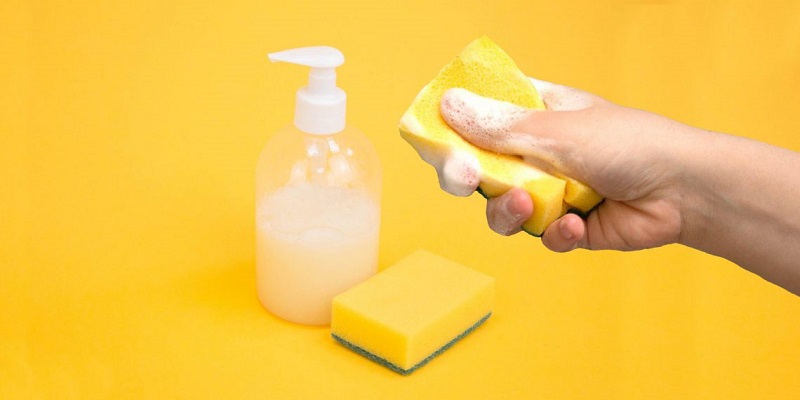
Detergent good for eczema
Detergents can help with eczema because they are good at getting rid of dirt and oil on the skin
They can also help with other skin problems like acne and psoriasis
The best detergent for eczema is a product that is specifically designed to clean the skin without aggravating it
It should have a low pH and be free of harsh chemicals like sulfates, sodium lauryl sulfate, alcohols, fragrances, dyes, and formaldehyde releasers
1) Cetaphil Gentle Skin Cleanser: This product has a pH of 5
5 ,close to the natural pH of healthy skin (5-6)
The Cetaphil cleanser is free of sulfates, sodium lauryl sulfate, alcohols, fragrances, dysdyesit itchy formaldehyde releasers, and It does not contain parabens or phthalates
2) Neutrogena Deep Clean Foaming Cleanser: This product has a pH of, which is very close to the natural pH of healthy skin
It is free of sulfates, sodium lauryl sulfate, fragrances, and dyes
3) CeraVe Hydrating Cleanser: This product is the most similar to the natural pH (5-6)
It does not contain sulfates, alcohol,s or fragrances
Eczema is a chronic, skin confit your Condit fungus can become slick and itchyition that can be uncomfortable and difficult to treat
Essentialrtant to find the best detergent for eczema since many people are sensitive to detergents
The best way to find the best detergent for eczema is by reading reviews from people who have tried different detergent brands and found one that works for them
The reviews will give you an idea of how well the product worked, how much it cost, any side effects they experienced, etc
Detergent yeast infection
Detergent yeast infection is a type o fungal infection commonly caused by using too much soap on the skin, hair, or fingernails
When there is too much detergent in your washcloth or your own bubble bath, the wax-like coating on certain types of fungus can become slick and cirritateone’sirritate one’s skin or your scalp
Slippery fungus can become slick or your Yeast infections are not contagious
They ca be treated with anti-fungal creams such as clotrimazole diphenhydramine and oral medications such as Nystatin
Treating Yeast Infections at Home With Listerine; Yeast infections commonly occur when you use fragranced soaps due to their excessive lubrication
The extra lubricating wax/oil-like substance can cause a type of fungal infection to become stuck in the pores and surround the skin, hair, or fingernails
Fungal cover infection to become stuck in the pores and surround To
To prevent this type of problem, one should not use soaps that have sudsy oils built into them
In addition, while it is essential to wash your hair and body every day with a foamy or cleansing shampoo or soap, it is also imports actually then essential to keep track of the type of soap you are using
A popular treatment for detergent yeast infections is using Listerine mouthwash as an antifungal treatment
Listerine mouthwash is treatment best over-the-counter medication treatment for those who have with yeast infections
This is because Listerine mouthwash contains an ingredient called Eugenol, which can kill the yeast or fungus, causing Toproblem
This ingredient also works by destroying white blood cells that enter the body after being exposed to germs
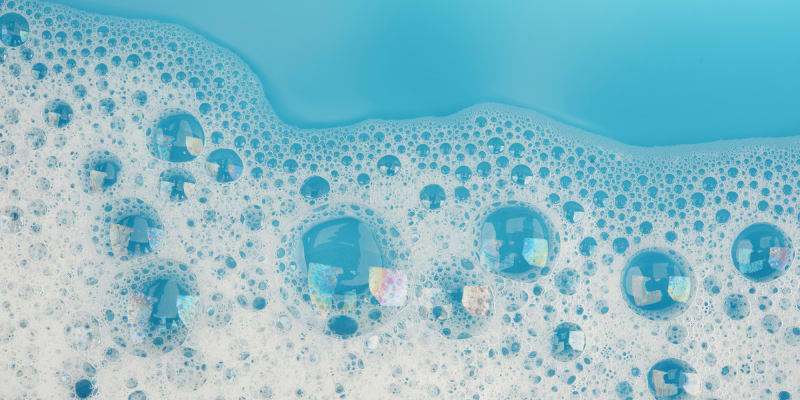
It is recommended to use Listerine as a mouth rinse two or three times per day for two weeks, then increase to four times per day for another two weeks
You should be able to stop using Listerine and make it a once per week the treatment routine
In order to leading effectively treat the yeast infection, one must first make sure that they do not have any other type of fungus infection such as athlete’s foot
If you notice that your feet are itchy, flaky, and infected after you begin using Listerine mouthwash, then it is advised to see a doctor so that they can prescribe oral anti-fungal drugs and creams
If a person already has a secondary fungus infection such as athlete’s foot, then they should still use Listerine mouthwash on their face
This is because this particular mouthwash contains ingredients that can kill the thdermatophytesin cause of athlete’s foot – the dermatophyticthe fungus
Detergent making me itch
Detergents are designed to clean clothes and remove stains
They also have the potential to cause skin irritation or itching
This is a common complaint among people who are sensitive to the chemicals in the detergent
The detergent can cause an allergic reaction because it contains some of the following ingredients:
Sodium lauryl sulfate, which can irritate skin and eyes
Soap, which can dry out the skin
Fragrance, which can cause allergies or asthma
Dyes, which can irritate skin and eyes
Propylene glycol, which i a solvent that can cause skin dryness Detergents are a popular choice for many people because they are effective at cleaning and removing stains
A disadvantage of using detergents to clean your clothes is that they may damage the fibers in your clothes
Detergents contain chemical solventirritates and these chemicals can be absorbed into the fibers of your clothes
If the chemical solvent is absorbed into the cotton or wool fibers, it can cause them to lose their shape and become brittle
Sodium lauryl sulfate
Soap
Fragrance
Propylene glycol
Dyes
Alcohol
Sodium chloride
Sodium perfluorooctanoic acid
Methylisothiazolinone
Nitrosamines
Some of the chemicals in detergents may be substances, while others may cause allergies
Some of the chemicals that can cause allergic reactions include fragrance, dye, and propylene glycol
Fragrances are used to, provide a fresh smell, but they can cause allergies or asthma
Fragrances are made from petrochemicals and they contain volatile organic compounds (VOCs)
VOCs are associated with several health problems such as headaches, nausea, dizziness, confusion, and, fatigue
The National Institutes of Health (NIH) has identified fragrance as a known cause of asthma
Some of the other chemicals that can result in allergic reactions include alcohol, soap, and nitrosamines
Nitrosamines are a food additive used in some processed meats, processed deli meats and cured/smoked foods
Nitrosamines can form carcinogenic nitrosamines when they are heated at high temperatures
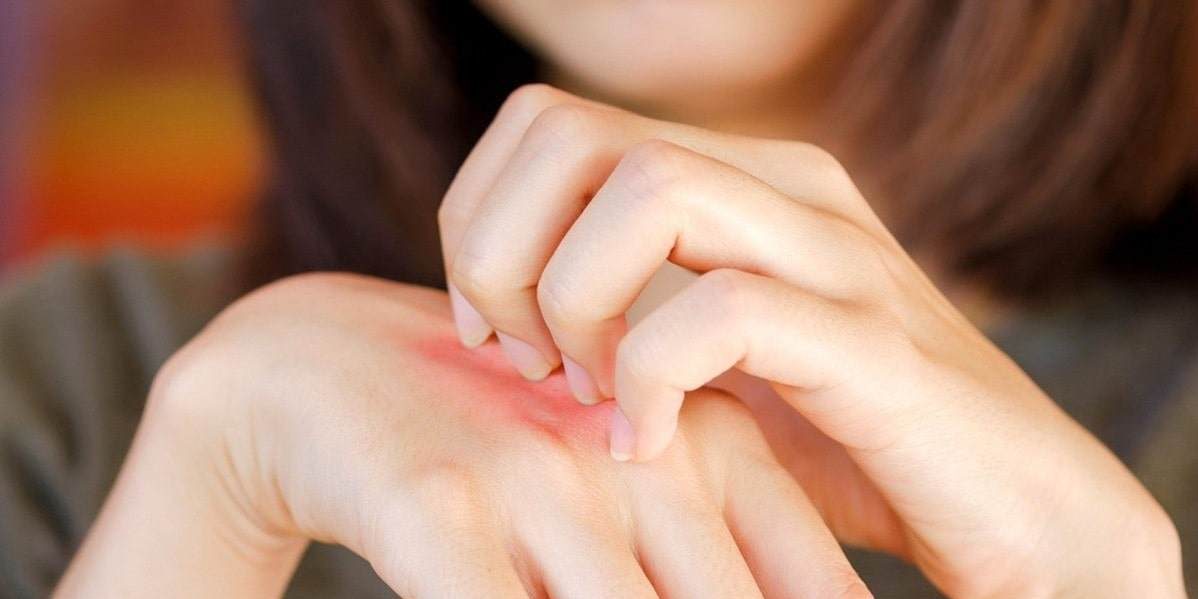
Breeze detergent
Breeze has been around for many years and has become one of the most popular laundry detergents on the market because of its gentleness and its ability to clean clothes without damaging them
The company also offers other products such as fabric softener, dryer sheets, and even a stain remover
The Breeze detergent brand was created to cater to the needs of people who are looking for a detergent that can do more than clean their clothes
The company wants to provide them with an option that can make their clothes smell fresh and feel soft
They have a wide range of products that cater to different needs, such as liquid, powder, or tablets, depending on what they are looking for
They offer a laundry detergent in powder form that uses scent technology to achieve the same smell that the liquid detergent left behind
All of their products are produced using natural ingredients which, means they are gentle and will not irritate the skin or make it feel itchy
They also have different scents so they can choose whichever one they like best
The aromas will leave clothes smelling fresh and clean
Breeze detergents also come in different formulas so, you can choose whether you want one that is high sudsing or low sudsing depending, recipe on what your clothes need
They have a formula for every type of clot, and tablets tohes so there is no need to worry about getting it wrong
The Breeze products also come in different forms such as liquid, separate for color, powder and tablets so that you can choose whatever kind of product you want
If you are allergic to chemicals or fragrances, then the company recommends their unscented formulas so that you don’t have to worry about sneezing or itching
Other products from this brand include fabric softener, dryer sheets, and stain remover
All of these products are gentle on clothes and easy to use
The fabric softener will leave clothes feeling soft while, the dryer sheets will eliminate static electricity and make clothes smell nice
Earth Breeze detergent
One of Earth Breeze’s most popular products is their laundry detergent
It is a liquid detergent that comes in three scents: Lavender, Spring Meadow, and Fresh Air
The detergent contains plant-based ingredients that are free from any harsh chemicals or synthetic fragrances
Earth Breeze has a variety of other products as well
They have dish soap, hand soap, and dishwasher detergent
They also have laundry accessories like fabric softener sheets and dryer sheets! Earth Breeze is part of the Green Works family, by Clorox
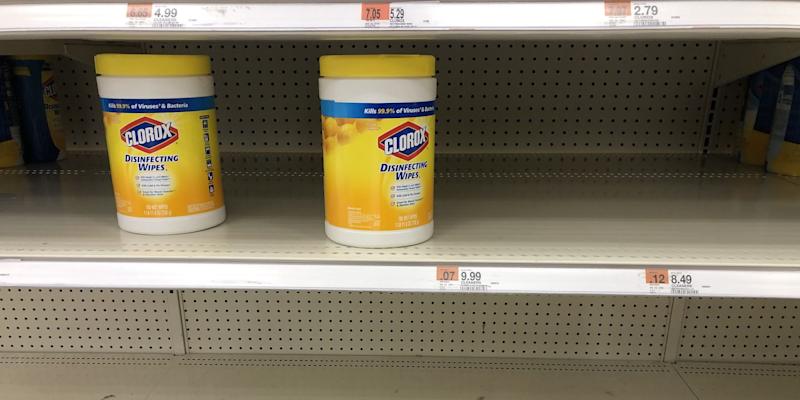
There are a few scents to choose from as well
Green works as an antibacterial hand soap and an antibacterial dish soap
They also have a variety of other products like laundry detergent and laundry booster! Green Works is part of Clorox’s “Stockholm” division, which means they are earth-friendly
There are three different scents to choose from; Orange Blossom, Pomegranate & Citrus and Lavender & Lemon Grass
These products have 99% naturally derived ingredients, including seaweed, olive leaf extract and essential oils
These products also have 100% recycled packaging
There are a variety of different scents to choose from: Citrus Mint, Hawaiian Aloha, Lavender Fields, Spring Meadow and Sunny Day
These products have 99% naturally derived ingredients, which includes aloe vera and essential oils
Their packaging is also 100% recycled
Lavender Fields is part of Clorox’s “Stockholm” division
There are a variety of different scents to choose from: Cucumber Melon, Coconut & White Grapefruit, Lilac Blossom & Apple Blossom and Peach Bellini
These products are 99% naturally derived ingredients that include aloe vera and essential oils
Detergent reviews
There are many detergent reviews out there, with some of them being more credible than others
A detergent review is a type of content that is written by someone who has used the product, and then they share their experience with it
It is important to take these reviews with a grain of salt as you read them because not all reviews are created equal
In this way, they can provide people with the necessary information to help them make decisions when it comes to buying detergents
Some detergent reviews can be positive or negative, so it’s important to read through them and find the ones that are most credible before deciding which one you should buy
There are many detergents available in the market today, each with its own unique properties
Some of these properties include fragrance, color, texture, and cleaning power
There is a detergent for every user’s needs and preferences
The best way to find a good detergent is to read as many reviews as possible before making a purchase decision
This will help you make an informed decision about which product is best for you
The reviews are usually posted by people who have used the detergent and have given their opinion about it
These reviews can be found on YouTube, Facebook, and many other platforms
There are many benefits to publishing reviews on a website or blog
For one, it has been proven that people trust user-generated content more than other forms of content because they feel as though it is more genuine and reliable
This is also because user-generated content is usually published by people who have first-hand experience with the product and are able to offer their opinion about it
There are many benefits to publishing detergent reviews
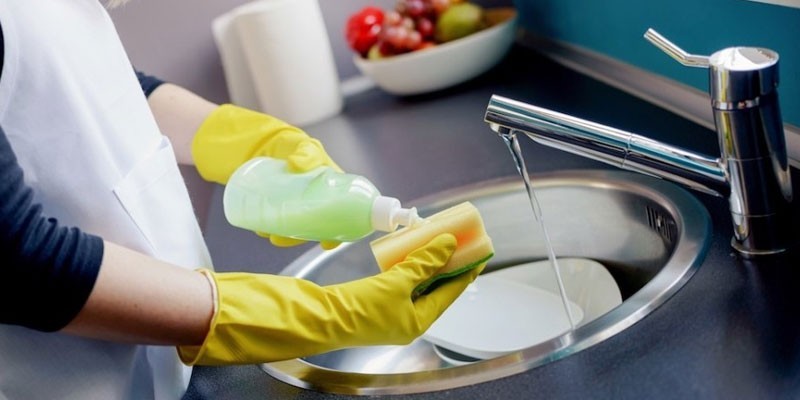
One of these is that you will be viewed as an authority figure when it comes to detergent reviews because people will see you as someone who has used the product and can offer a credible opinion about it
This means that people will listen to you and take your review seriously
You can also use your detergent review to showcase your skills and knowledge about the product, which again means people will listen to what you have to say about it
Detergent ratings
Detergent ratings are a measure of how well a detergent cleans clothes
The ratings are based on soil removal and whiteness tests
There are two different ratings, the “Clean” rating that is based on how much soil a detergent can remove from heavily soiled clothes, and the “Whiteness” rating that is based on how well a detergent whitens clothes
A water-based detergent will have a higher Clean rating than an oil-based one
White clothes are born white and need to be bleached for their original color; with an oily clean, bleach may not penetrate the fabric’s fibers enough to restore the white color
How do you know which type of detergent your family needs? Detergents with lower ratings are most likely better suited for lightly stained clothes while those rated around 90 will clean up more heavily stained clothing
Detergents vary in cleaning ability, so it is important to look at the type of laundry you will be doing and what you need to remove the stains
Also, many detergents have less of a cleaning effect on clothes than some other detergents
The trick with choosing the right detergent for your clothes is to find one with a higher wicking and brushing power compared to regular laundry detergent
This allows your clothes to dry faster and may minimize static cling that can occur with regular laundry detergent
When recommending detergents, the only thing that really matters is the cleaning power of the detergent, not the brand or store it was purchased from
It takes a large amount of time to find a detergent that you will like, so it is important to be open-minded about which kinds you may need to try
Also remember that having different kinds of stains on your clothes will require different types of detergents
It is always a good idea to do research on laundry care products before deciding which one is best for you and your family’s needs, especially when it comes to laundry care products that contain bleach and other ingredients
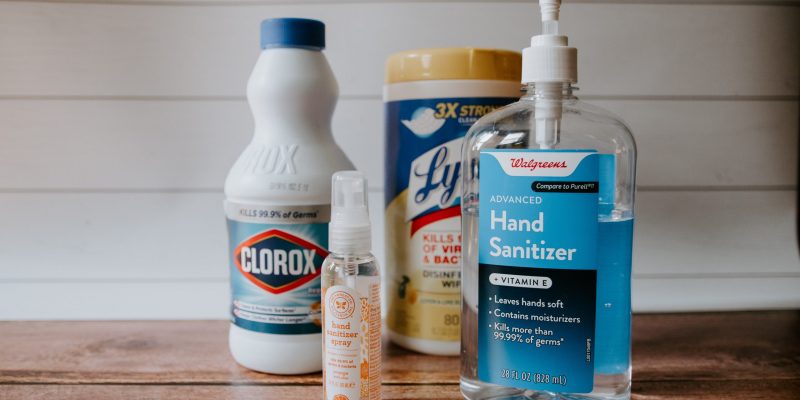
Detergent allergy
Detergent allergy is a common condition in which the skin reacts to detergents
The reaction is often a type of eczema, but it can also be contact dermatitis
Detergents are used for many purposes, including washing clothes and dishes
Detergent allergy is a reaction of the skin to detergents
The skin reacts to the substance and becomes inflamed
This inflammation causes redness, itching, flaking, blistering or peeling of the skin
The area that becomes inflamed can be very small or cover large areas of the body, including the face
Detergent allergy symptoms can include: skin irritation, itchiness, redness and a rash
Respiratory symptoms can include wheezing, difficulty breathing and an asthma attack
Detergent allergy is a disease that can be treated
The symptoms tend to be mild, but they can be severe in some cases
When you have an allergy to detergents you should avoid contact with the substance and use products that do not contain it
For example, if you have a detergent allergy and are washing dishes or clothes in your home, you may want to consider purchasing non-detergent dishwashing liquid or laundry detergent
A person who has an allergy to a particular detergent may have these symptoms after coming into contact with it for even a short time or after long-term exposure
There is a growing population of people who are allergic to the chemicals in detergents
This is due to the increased use of synthetic detergents
The chemicals that are used in these detergents have been shown to cause asthma, rhinitis and other allergies
These chemicals can also be found in laundry products like dryer sheets and fabric softeners
Detergent allergy baby
Parents who have babies with sensitive skin need to be careful about the detergents they use
Babies are more likely to develop allergies and sensitivities when they are exposed to detergents
Babies are more susceptible to allergies than adults
They are also more sensitive to the ingredients in detergents and other products
Allergenic detergent for babies is a new product that will address this issue
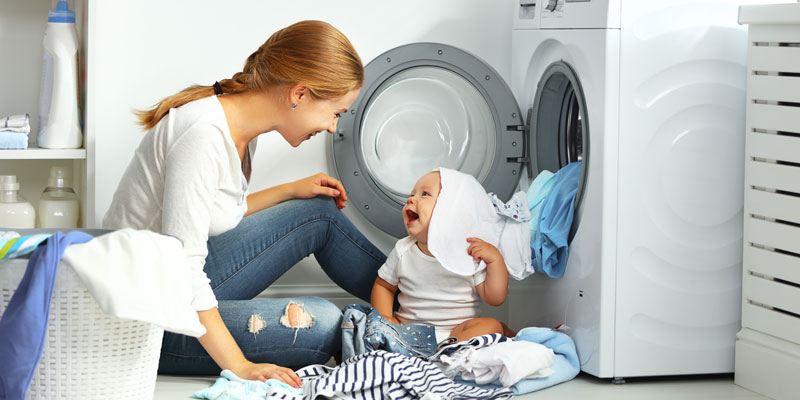
Allergenic detergent for babies is a new product developed by a company called “Baby Detergent”
It is specifically designed for washing clothes that may contain allergens such as dyes, perfumes, and other chemicals
The company claims that its product will be gentler on your baby’s skin because it has no fragrances or dyes
The detergent is a product that is used for washing clothes
Detergents are typically made of surfactants, which are chemicals that lower the surface tension between two liquids
Detergents can be added to water in order to reduce the surface tension and allow dirt and oils to be removed from clothing more easily
The detergent helps dissolve the dirt and oils, so it can be washed away with water
The most common types of detergents are soap-based, which use sodium hydroxide as a main ingredient, or synthetic detergents which use petroleum-based chemicals such as alkyl benzene sulfonates or linear alkylbenzene sulfonates
The most common synthetic detergents are triclosan and sodium lauryl sulfate
These detergents are usually added to wash water to increase the performance of cleaning machines such as washing machines, dishwashers, and dryers
They are also used in a variety” of other products including soaps, shampoos, and hand sanitizers
The most common type of detergent that is used in baby-care products is soap-based because it can be gentler on the baby’s skin
Other types of detergents may contain fragrances or dyes that can cause allergic reactions or increased sensitivity
The ingredients in detergents are also important
Detergents that use surfactants which are very effective at cleaning clothing may also be very harsh on baby skin
To reduce irritation and irritation, you should carefully choose the detergent that you choose for the baby
